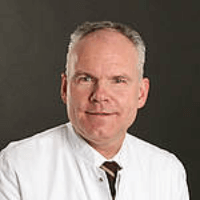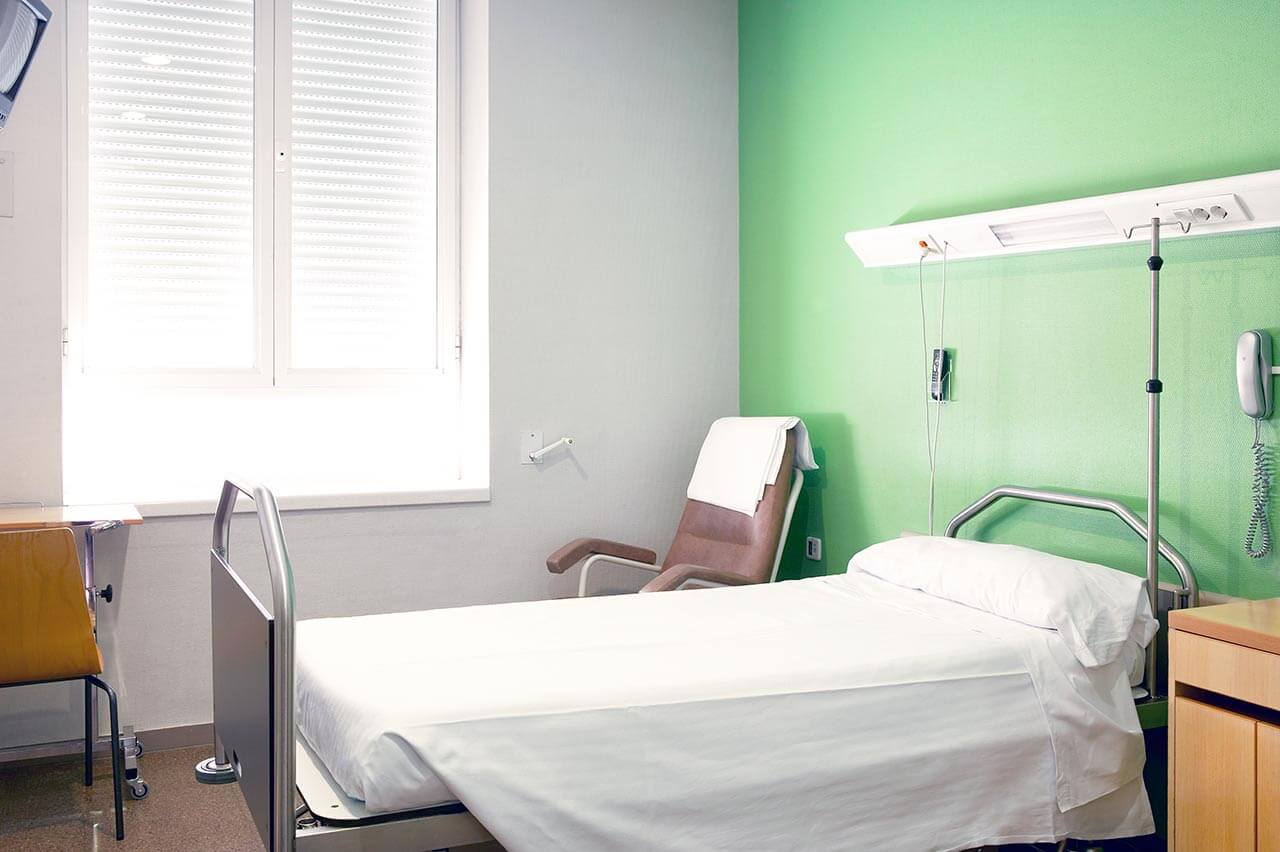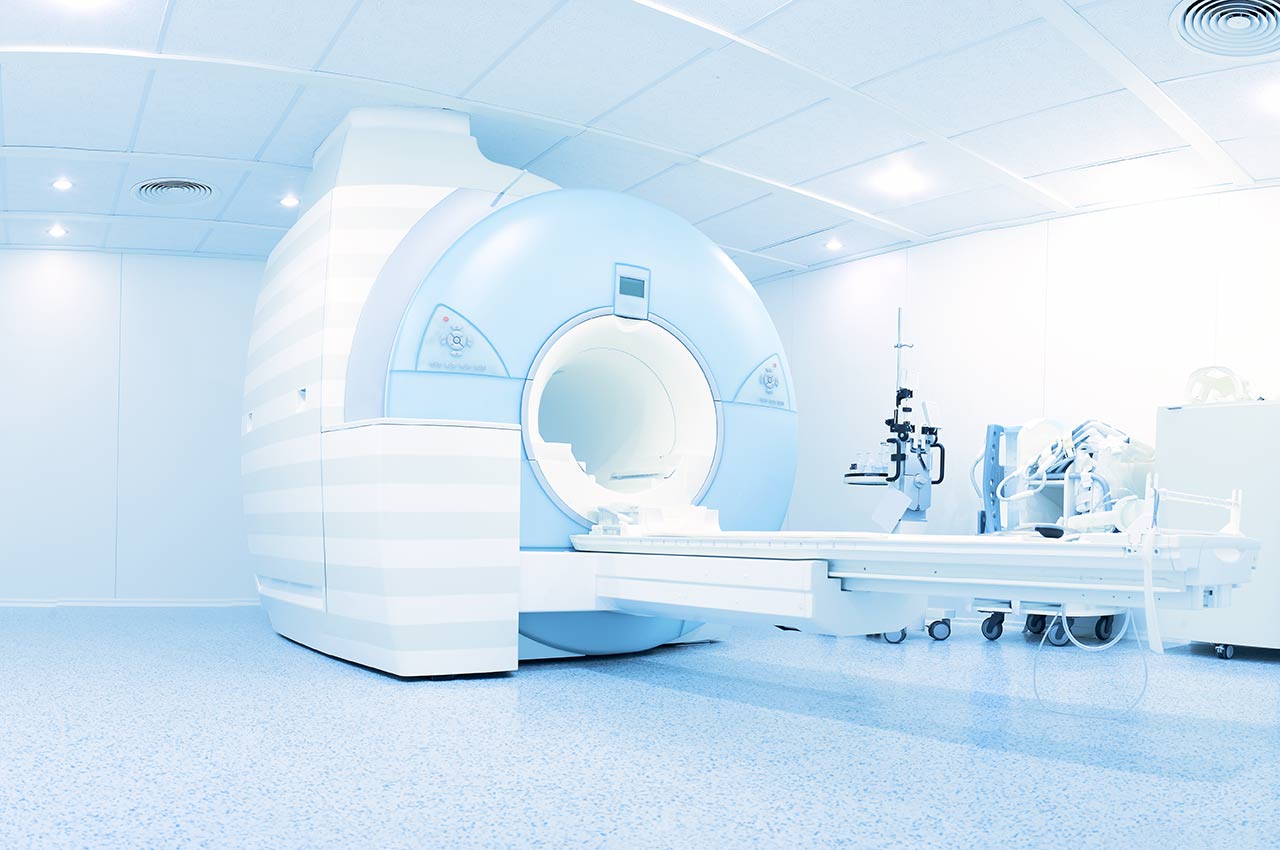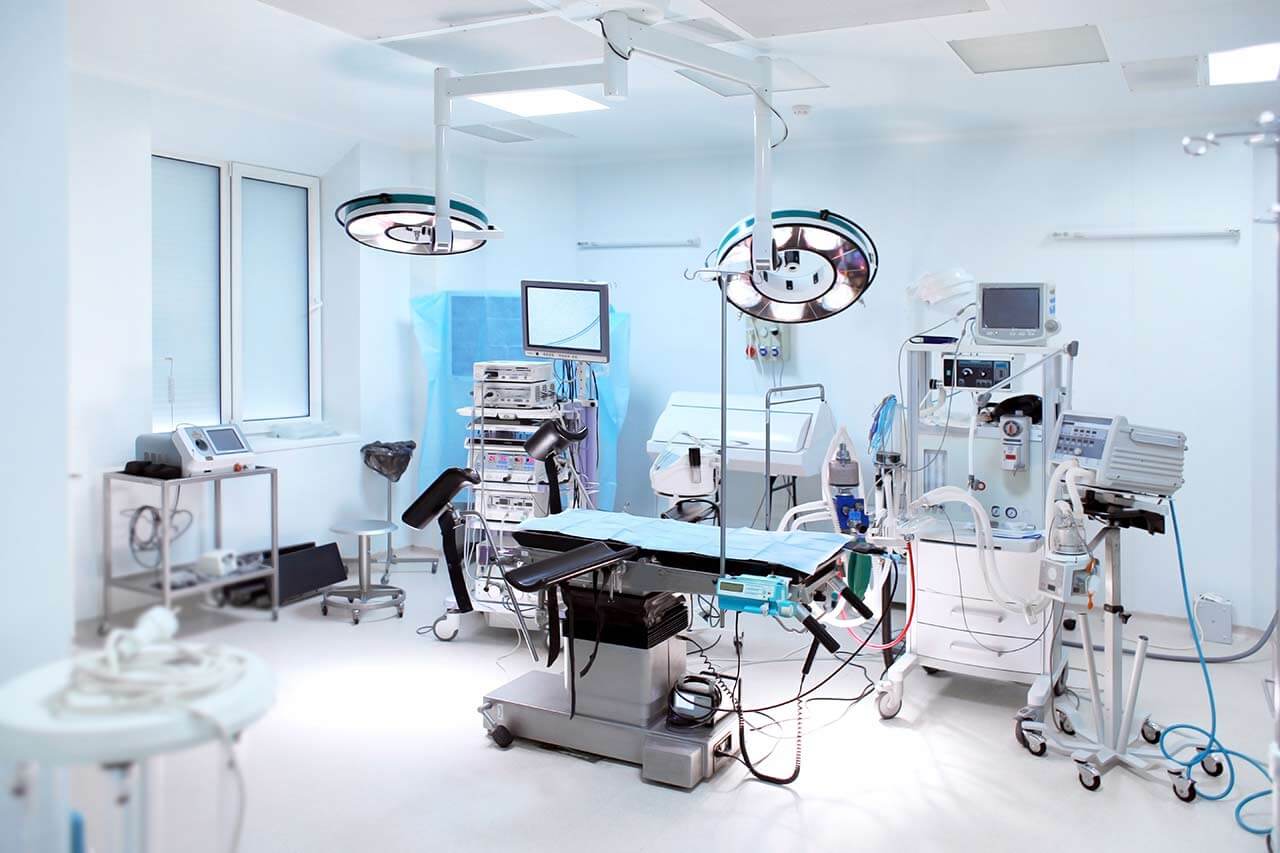
The program includes:
- Initial presentation in the clinic
- clinical history taking
- review of medical records
- physical examination
- laboratory tests:
- complete blood count
- biochemical analysis of blood
- inflammation indicators (CRP, ESR)
- indicators blood coagulation
- neurological examination
- CT/MRI scan
- neuropsychological tests (on indications):
- ENMG (electroneuromyography)
- EEG (electroencephalography)
- SEPs (somatosensory evoked potentials)
- VEPs (visually evoked potentials)
- BAEP tests (brainstem auditory evoked potential)
- preoperative care
- interpositional nervi graft
- symptomatic treatment
- control examinations
- the cost of essential medicines and materials
- nursing services
- full hospital accommodation
- developing of further guidance by specialists
in oncology and radiotherapy
Required documents
- Medical records
- MRI/CT scan (if available)
Service
You may also book:
 BookingHealth Price from:
BookingHealth Price from:
About the department
The Department of Adult and Pediatric Neurosurgery at the University Hospital Würzburg offers the diagnostics and treatment of the entire spectrum of neurosurgical diseases. The department specializes in the treatment of brain tumors, vascular diseases and intracerebral hemorrhages, spinal diseases, deep brain stimulation, etc. Special competence lies in the field of pediatric neurosurgery. The department offers the very latest highly accurate and minimally invasive treatment methods. The department is headed by Prof. Dr. med. Ralf-Ingo Ernestus.
One of the main activities of the department is the surgical treatment of brain tumors. With the help of the very latest methods, it treats the whole spectrum of brain tumors, as well as tumors of the meninges, pituitary, brain metastases, CNS lymphomas or tumors of the cranial nerves (for example, an acoustic neuroma). In the treatment of brain neoplasms, there is maintained active cooperation with the Departments of Neuroradiology, Radiation Therapy, Neurology, Oncology, Nuclear Medicine, etc.
The department performs microsurgical interventions to treat the vessels of the brain and spinal cord. When performing these interventions, the doctors use various imaging methods that promote the best possible accuracy and safety for patients. For example, intraoperative vascular imaging is performed using fluorescein angiography. 3D-angiography methods, such as the innovative O-arm angiography system, provide accurate three-dimensional images with minimal radiation exposure.
The department ranks among the leading Pediatric Neurosurgery Centers in Germany. The offered service spectrum includes the treatment of all neurosurgical diseases, tumors, malformations, injuries in children and adolescents of all age groups. The department specializes in the treatment of CNS tumors, skull pathologies (various types of craniostenosis), as well as spine and spinal cord malformations (spina bifida). Other focuses are on the correction of impaired circulation of the cerebrospinal fluid (hydrocephalus), treatment of traumatic brain injuries and vagus nerve stimulation (VNS therapy) in epilepsy. In addition, the department has an exceptional experience in the treatment of very rare diseases.
The diagnostic and therapeutic spectrum of the department includes the following options:
- Brain tumors
- Gliomas (primary brain tumors)
- Meningiomas
- Acoustic neuroma or vestibular schwannoma
- Pituitary tumors
- Brain metastases
- Spinal tumors
- Primary spinal tumors
- Spinal meninges tumors
- Nerve sheath tumors
- Tumors of the spinal bone structures
- Vascular diseases and intracerebral hemorrhages
- Aneurysms
- Vascular malformations (angiomas and atrioventricular fistulas)
- Intracerebral hemorrhages
- Spinal diseases
- Degenerative diseases of the cervical, thoracic and lumbar spine (herniated intervertebral discs, spinal stenosis, vertebral displacement, vertebral body fracture, etc.)
- Vascular diseases (arteriovenous malformations / angiomas, atrioventricular fistulas, etc.)
- Spinal tumors (spinal cord tumors, meningiomas, neuromas, metastases)
- Infectious diseases (spondylodiscitis, osteomyelitis, intraspinal abscesses)
- Spinal injuries
- Chronic spinal pain
- Enlargement of the brain ventricles (hydrocephalus)
- Peripheral nerves
- Nerve ending injuries
- Impingement syndromes
- Deep brain stimulation in movement disorders
- Pediatric neurosurgery
- CNS tumors
- Skull pathologies (various types of craniostenosis)
- Spine and spinal cord malformations (spina bifida)
- Impaired cerebrospinal fluid circulation (hydrocephalus)
- Treatment of traumatic brain injuries
- Vagus nerve stimulation (VNS therapy) in epilepsy
- Diagnostics and treatment of other neurosurgical diseases, malformations and injuries in adults and children
Photo of the doctor: (c) Universitätsklinikum Würzburg
About hospital
According to the FOCUS magazine in 2019, the University Hospital Würzburg ranks among the top national German hospitals!
The hospital is one of the oldest medical facilities in Germany. The centuries-old traditions of first-class treatment are combined with the very latest achievements of modern evidence-based medicine and advanced expert experience. The hospital is the maximum care medical center and covers all fields of modern medicine. The hospital has an impeccable international reputation and treats a large number of patients from other countries every year.
A distinctive peculiarity of the hospital is active interdisciplinary cooperation. A large number of diseases are diagnosed and treated within the specialized centers, which medical teams rely on the unique experience of treatment of a wide variety of clinical cases. For example, such centers include the General Cancer Center, the Stem Cell Therapy Center, the Breast Health Center, the Gastrointestinal Center, the Thoracic Surgery Center, etc. In total, the hospital has more than 40 centers of this kind. Therefore, the patients of the hospital are confident that they will be offered the most relevant treatment in accordance with the very latest medical recommendations.
In addition to the most advanced achievements and methods of modern medicine, the medical team of the hospital makes every effort to create a comfortable, friendly atmosphere, which promotes patient well-being and recovery.
Photo: (с) depositphotos
Accommodation in hospital
Patients rooms
The patients of the University Hospital Würzburg live in comfortable rooms made in a modern design and bright colors. The patient room includes a bed with a remote control, a bedside table with a sliding table, a wardrobe, a TV. The patient rooms have the possibility of Internet connection. The enhanced-comfort rooms are equipped with a safe, a fridge and upholstered furniture.
Meals and Menus
The patients of the hospital are offered a varied and tasty three meals a day. There is a daily choice of several menus, including a dietary one. In case of intolerance to any food, please inform the medical staff about your food preferences in advance. After that, you will be offered an individual menu. Also, the hospital houses the cafes and cafeterias with a wide assortment of drinks, fresh pastries, fresh salads, sweets and other dishes.
Further details
Standard rooms include:
Religion
Christian priests are available for the patients at any time. Representatives of other religions may be requested at any time.
Accompanying person
Your companion may stay with you in your room or at a hotel of your choice during the fixed program.
Hotel
You may stay at the clinic hotel or a hotel of your choice during the outpatient program. Our manager will help you choose the best option.





